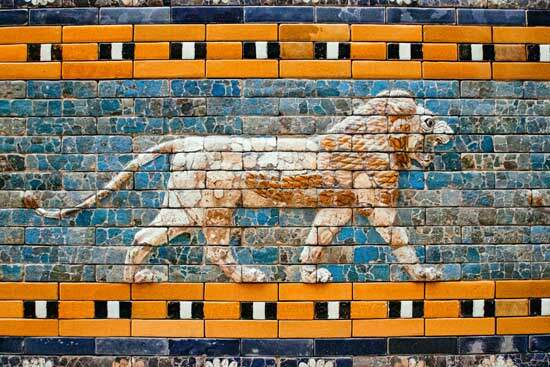What do Seventh-day Adventists Believe about the Remnant and its Mission?
Seventh-day Adventists believe God has faithful people in all churches, all around the world. They also see how God has always nurtured a group of faithful believers to proclaim His truth, love, and plan to save humanity.
This group is often called a “remnant.” This means they “remain” with God even amid persecution and also when it seems everyone else has rebelled against God, or compromised their beliefs.
Adventists believe this trend will remain true even to the last days, before the return of Christ.
Here are five things you’ll learn about the remnant in this post:
- Use of the remnant concept in the Old and New Testaments
- Characteristics of a remnant people, as described in the Bible
- The Remnant in the last days
- The Three Angels’ Messages
- The Remnant as the goal—to persevere for God
Adventists consider this topic of the remnant and its mission as so important that they address it as one of their fundamental beliefs. It reads:
This remnant announces the arrival of the judgment hour, proclaims salvation through Christ, and heralds the approach of His second advent.
This proclamation is symbolized by the three angels of Revelation 14; it coincides with the work of judgment in heaven and results in a work of repentance and reform on earth. Every believer is called to have a personal part in this worldwide witness.”
Was There a Remnant in the Old Testament?
Seventh-day Adventists believe that throughout sacred history, there has always been a remnant—a group of people who persevered as believers, armed with God’s Word to share with the nations around them.
Let’s look at some examples of the remnant in the Old Testament:
Noah and his Family
They served as the first example by following God’s instructions, building an ark, and preaching to a corrupt world about the coming flood.
After the flood, only a small group of Noah’s family remained alive, and it became their mission to spread out and proclaim God’s Word (Genesis 6).
This holds true to the dictionary definition of the word remnant as “a usually small part, member, or trace remaining.”
The 7000 believers in Elijah’s time are a remnant, which God Himself said that He “preserved.”
Elijah was at a low point, hiding out because those in power wanted him killed for defying their gods. He was discouraged, thinking He was the only follower of God left. But God encouraged Him that he should return to the people and anoint leaders among them, saying He “will preserve 7,000 others in Israel who have never bowed down to Baal” (1 Kings 19:18).
The Israelites in Egypt are another powerful representation of the remnant.
 They were a small nation of people who were to be God’s representatives.
They were a small nation of people who were to be God’s representatives.
As His servants, they were also “a kingdom of priests and a holy nation” (Exodus 19:6, NKJV).
And they stood out as unique in a world filled with paganism, idolatry, child-sacrifice, and a host of other unthinkable practices and beliefs.
Israel had sacred truths that contrasted these primitive beliefs, such as:
- The Sabbath (Genesis 2: 2-3
- The law of God (Exodus 20:1-17)
- The sanctuary (Exodus 15:17)
- The plan of salvation (Isaiah 53: 1-11)
- Creation (Genesis 1-2)
All these truths were all but lost to the pagan nations around them.
So they weren’t just meant to be “special” people to waltz around as “holier than thou,” but they were to witness to the world around them of the true God. They were meant to share and grow the kingdom of God on earth.
This explains why we find texts such as these addressed to the Jews:
“Therefore be careful to observe them; for this is your wisdom and your understanding in the sight of the peoples who will hear all these statutes, and say, ‘Surely this great nation is a wise and understanding people.’
“For what great nation is there that has God so near to it, as the LORD our God is to us, for whatever reason we may call upon Him?” (Deuteronomy 4:6-7, NKJV).
“‘Therefore you are My witnesses,’ says the LORD, ‘that I am God’” (Isaiah 43:12, NKJV).
But don’t we see throughout the Bible that the Israelites were often unfaithful?
Unfortunately, yes. A great deal of the Old Testament is the story of God’s people failing over and over. The sad story climaxes with their rejection of Jesus (John 19:15).
 But these failures didn’t change the crucial fact that they still had light and truth that others around them didn’t have. It was still their mission to share it.
But these failures didn’t change the crucial fact that they still had light and truth that others around them didn’t have. It was still their mission to share it.
In other words, the remnant isn’t defined so much by the holiness of the people but by the truths these people have been given, whether or not every single one of them are faithful to that truth 100% of the time.
For example, ancient Israel didn’t keep the seventh-day Sabbath as they should have (Exodus 16; Nehemiah 13:15-19; Jeremiah 17: 27; Ezekiel 20: 13). And since Sabbath-keeping was unique to them in the ancient world, this was a truth that identified them as God’s remnant.
But the fact that there were instances where they broke the Sabbath had nothing to do with the truth of that teaching in itself. Just like if a majority of people believed the earth were flat, that wouldn’t invalidate the truth that the earth is round.
Was there a remnant in the New Testament?
Adventists believe that the early Christian church of the first centuries was the remnant in the New Testament times. It was made of both Jews and Gentiles. Talking of the New Testament church, Seventh-day Adventist scholar Hans LaRondelle wrote:
“Since Pentecost, the Old Testament prophecies concerning the remnant of Israel had received their fulfillment in the formation of the apostolic church.”
“More than that, the faithful church of Christ down through the ages, especially in the fully restored apostolic faith in the time of the end, fulfills the remnant promises of the Old Testament.” (Handbook of Seventh-day Adventist Theology, Review and Herald, 2000, p. 864-865).
But in the New Testament, Paul predicted that there would be a time of great apostasy in the church, a falling away from the truth first delivered to the apostles.
“Let no one deceive you by any means; for that Day will not come unless the falling away comes first, and the man of sin is revealed, the son of perdition” (2 Thessalonians 2:3, NKJV).
In fact, the story of this apostasy and the rise of God’s final remnant is found in the book of Revelation.
What do Adventists believe about the remnant in the Last Days?
Adventists find that Revelation 12 provides a powerful depiction of God’s remnant people at the end of time.
The chapter depicts:
- The fall of Satan from heaven (Revelation 12:7-9).
- The beginnings of the Great Controversy, which then plays out on earth (Revelation 12: 3, 4, 12).
 In this chapter, God’s church is presented as a woman.
In this chapter, God’s church is presented as a woman.
A woman is a common symbol for the church in the Old Testament (Isaiah 49:15; Jeremiah 6:2; 31:22).
In Revelation 12, a woman symbolizing God’s people is about to give birth to a child.
This child is Jesus.
And then Satan, who is depicted as a dragon, seeks to destroy Him.
“And the dragon stood before the woman who was ready to give birth, to devour her Child as soon as it was born” (Revelation 12:4, NKJV).
This is not just symbolic of Satan using Herod to try and kill the infant Jesus (Matthew 2: 16-18). Instead, it refers to all of Satan’s attempts to destroy Jesus throughout His ministry.
But then Satan failed, and Jesus was “caught up to God and His throne” (Revelation 12:5, NKJV). And that’s where Jesus is today, ministering on our behalf in the heavenly sanctuary.
Enraged that He couldn’t stop Jesus, Satan then is depicted as going after the woman who “gave birth to the male child” (Revelation 12:13, NKJV).
This woman is the faithful church and the child is Jesus.
In verses 6 and 14 of Revelation 12, we’re given a prophetic time period of 1260 days (which according to the “a day for a year principle” equates to 1260 literal years).
It’s a time period during which Satan attacks the church in antiquity. But it turns out that despite the attacks, God still preserves the church.
Adventists believe that this was during the years of papal supremacy. A time of terrible persecution of those who remained faithful to the truth. They were persecuted by the Roman church.
It’s at this time that Paul’s prediction was fulfilled. The prediction of there being a great “falling away” of God’s people.
Talking about the persecution depicted in Revelation 12, Adventists teach:
“The Christian world became a battlefield. Many were imprisoned and/or executed in the name of God!
During the 1260-year persecution, millions of faithful believers experienced great suffering, while many paid for their loyalty to Christ with death”1
It’s in this context, after the specified period of persecution, that the end-time remnant church appears.
What are the Characteristics of the Remnant Church Based on Revelation 12?
 After depicting Satan’s attacks on the church, the Bible then talks about his continued assault on a special group of people who arise in the end—the remnant.
After depicting Satan’s attacks on the church, the Bible then talks about his continued assault on a special group of people who arise in the end—the remnant.
“And the dragon was wroth with the woman, and went to make war with the remnant of her seed, which keep the commandments of God, and have the testimony of Jesus Christ” (Revelation 12:17, NKJV).
Here we see here a direct reference to the end-time remnant.
Who are they?
The woman is the faithful church.
And her “seed” is obviously those later generations whom she bore. They’re the faithful Christians that came after the early days of the church.
In this case though, the verses talk about “the remnant of her seed.” That is those who remain after the long centuries of suffering and persecution of the church.
Two distinct traits depict this remnant.
They keep the commandments of God.
Notice, it does not say they keep “most of the commandments of God.” Or that they “keep all the commandments of God but the fourth.” It says keep the commandments of God, all of them, which includes the Seventh-day Sabbath (Exodus 20:1-11).
Scripture is explicit:
“For whosoever shall keep the whole law, and yet offend in one point, he is guilty of all. For he that said, Do not commit adultery, said also, Do not kill. Now if thou commit no adultery, yet if thou kill, thou art become a transgressor of the law” (James 20:10-11, NKJV).
The first characteristic of this remnant is their obedience to the law of the Ten Commandments, and this includes the Seventh-day Sabbath.
This doesn’t mean they’ll be saved by keeping the law. That is impossible to any human on their own power.
Instead, they keep the law to express their love to God for what He has done for them through the death of Jesus.
They believe it when the Bible says:
“For this is the love of God, that we keep his commandments: and his commandments are not grievous” (1 John 5:3, NKJV).
That is, they show their love of God by keeping His commandments—all Ten of them. It’s really that simple,
They have the testimony of Jesus Christ.
What is that?
Revelation 19:10 defines the testimony of Jesus for us.
“For the testimony of Jesus is the spirit of prophecy” (Revelation 19:10, NKJV).
In other words, the “testimony of Jesus” is revealed in the manifestation of the prophetic gift, something clearly taught in the New Testament.
Paul talked about the spiritual gifts given to the church, which includes apostles, prophets, evangelists, pastors, and teachers (Ephesians 4:11).
The prophetic gift will be specifically made manifest among this end-time remnant. This gift—like all spiritual gifts the Holy Spirit gives humans—is still active and has been made manifest among believers.
As Adventist scholar Hans LaRondelle wrote:
“Through the years Seventh-day Adventists have believed that the gift of prophecy has been manifest among them in the work of Ellen G. White.”2
Do Adventists believe that they alone are The Remnant for the Last Days?
Absolutely not. Seventh-day Adventists have never taught that one has to be an Adventist to be saved.
And, as we have seen with ancient Israel, just being part of the remnant doesn’t guarantee salvation, either.
Historically, the remnant has often been defined by the distinct truths it had. Distinct truths that it needed to spread to others.
It was not defined by the holiness of its people because unfortunately, many of its people weren’t always all that holy!
And the same goes with the Seventh-day Adventist church.
Just like any church group that has ever existed on earth, it is filled with flawed people. But it also has a distinct message of truth and hope to proclaim to the world.
And this is found in the Three Angels’ Messages in Revelation.
What are the Three Angels’ Messages?
 Seventh-day Adventists believe that God has a “present truth” message in every age (2 Peter 1: 12).
Seventh-day Adventists believe that God has a “present truth” message in every age (2 Peter 1: 12).
And for these last days the Three Angels’ Messages of Revelation 14: 1-12 constitute the distinct message for this specific time, just before the return of Jesus
And the church also believes that it has been called by God to proclaim these truths to the world.
That means spreading the Three Angels’ Messages is its mission.
What are these messages?
The first angel’s message:
“And I saw another angel fly in the midst of heaven, having the everlasting gospel to preach unto them that dwell on the earth, and to every nation, and kindred, and tongue, and people, Saying with a loud voice,
Fear God, and give glory to him; for the hour of his judgment is come: and worship him that made heaven, and earth, and the sea, and the fountains of waters” (Revelation 14:6-7, NKJV).
There’s so much in here.
But the essence of the message is that the time of judgment has come. And this is in the context of the “everlasting gospel.”
And because judgement time is here, the whole world is called to worship their Creator, the One who made and sustains them.
In many ways, this “present truth” message is just a restating of basic biblical truths that go back to the Garden of Eden after the Fall.
But this time, these Biblical truths are in the context of the last days of earth’s history, before the Second Coming of Christ.
The Second Angel’s Message:

“And there followed another angel, saying, Babylon is fallen, is fallen, that great city, because she made all nations drink of the wine of the wrath of her fornication” (Revelation 14:8, NKJV)
In the Old Testament, the ancient city of Babylon had always been depicted as the enemy of God and His people (2 Kings 25:6; Daniel 1:1).
And now, that imagery is used to depict those who are against God and His people in the last days.
Fornication is a biblical symbol of false teachings and false doctrines, which are unfaithfulness to God (Ezekiel 16:15; Hosea 2:5).
“Babylon” represents the collective false religion/doctrines.
Therefore, this message is to let the world know just how widespread and serious the misleading doctrines and practices of Babylon’s false religion really are.
In fact, God’s people are later called to “come out of her” [Babylon] (Revelation 18:4)
The Third Angel’s Message reads in part:
“Then a third angel followed them, saying with a loud voice, “If anyone worships the beast and his image, and receives his mark on his forehead or on his hand, he himself shall also drink of the wine of the wrath of God, which is poured out full strength into the cup of His indignation” (Revelation 14:, 9, 10, NKJV).
This is the most fearsome warning in the Bible.
And it depicts a time of world-wide persecution, just before Christ returns (Revelation 13: 1-17).
 Notice also just how central worship is here.
Notice also just how central worship is here.
In the first angel’s message, people are called to worship God, with an emphasis on Him as Creator (Revelation 14:6-7).
But in the third angel’s message, people are warned about worshiping the “beast and his image,” an end-time expression of the false religions of Babylon that was depicted in the second angel’s message.
Finally, we have been given another depiction of God’s end-time people, His remnant.
“Here is the patience of the saints; here are those who keep the commandments of God and the faith of Jesus” (Revelation 14:12, NKJV).
Again, as in the earlier depiction of end-time remnant, “the commandments of God” are one of the two main characteristics that identify it.
And, as already stated, this means all the commandments, including the Sabbath.
This second characteristic only talks about Jesus instead of the “testimony of Jesus.”
It says “the faith of Jesus”—an expression that reveals their faith in God, and their trust in Christ’s sacrificial death, which alone makes it possible for us to experience salvation and redemption.
In many ways, one could simply say that these people truly believe in the Gospel.
Why do Adventists emphasize the concept of The Remnant?
In preparation for Jesus’ Second Coming, Adventists have a “burden for souls,” wishing to share this hope with everyone and help people be prepared.
- Very few other churches fully keep “the commandments of God,” because not all groups keep the Seventh-day Sabbath.
- The manifestation of “the spirit of prophecy” has occurred among them.
- Adventists believe and proclaim the Gospel, salvation by faith in Jesus Christ.
- They believe that these three identifying marks distinguish the End-Times Remnant, and it is a collective goal to be useful to God in this way.
Adventists believe that God has always had a remnant of people who remained faithful to God and His word. And that these remnant people upheld all of His commandments and were a witness to the world of the present truth they had for their time.
What does the concept of the remnant mean for us today?
The whole idea of a remnant people is that God is our refuge and strength (Psalm 46:1), and that He will always make sure His message and His people persevere, even when things seem impossible. He will never leave us or forsake us (Deuteronomy 31:6).
There is no special favor or reward for any of God’s remnant groups throughout history. Rather, just like any spiritual gift the Holy Spirit empowers individuals with, the End Times Remnant is a group of people that make use of the spiritual gift of prophecy and proclaim the Three Angels’ Messages.
The real takeaway here is that God is the victor, and He loves humanity enough to do whatever it takes to save us (John 3:16, 17).
He will even bestow upon humans remarkable spiritual gifts to make sure His Word is shared to those who want to hear it (1 Corinthians 12:4-11).
And everyone who claims Jesus as their Savior, recognizing His sacrifice to free us from the influence of “Babylon” (Joel 2:32), will be called to meet Jesus in the air when He returns for us (1 Thessalonians 4:17).
[1] Seventh-day Adventists Believe, Ministerial Association of the General Conference of Seventh-day Adventists, 2005. pgs. 184-185.
[2] Handbook of Seventh-day Adventist Theology, Review and Herald, 2000, p. 888.
Questions about Adventists? Ask here!
Find answers to your questions about Seventh-day Adventists
More Answers
Why Many Seventh-day Adventists Choose a Vegetarian Diet
Why Many Seventh-day Adventists Choose a Vegetarian Diet?You may have an Adventist friend who is vegetarian, or maybe you’re attending a Seventh-day Adventist Church for the first time and notice the potluck doesn’t have any meat. This isn’t unusual in Adventism. In...
The Health Benefits of Fresh Air You Should Know About
The Health Benefits of Fresh Air You Should Know About“When you can’t breathe, nothing else matters,” the American Lung Association tells us. And while that’s true, the kind of air you’re breathing will determine the health benefits you experience. Breathing fresh...
What Do Seventh-day Adventists Choose to Eat?
What Do Seventh-day Adventists Choose to Eat?Food blogs overwhelm the internet; food fads are all the rage; and copycat and healthy versions of food are the subject of many a get-together. Eating—and eating the best way—is a big deal. And everybody has a different...
10 Incredible Ways Sunlight Can Improve Your Health
10 Incredible Ways Sunlight Can Improve Your HealthAre you concerned about sunlight’s negative effects? You might be the one who lathers on the sunscreen and covers up when you go outside. Or maybe you avoid being outside as much as possible. You might be surprised,...
Why Is Water So Important?
Why Is Water So Important?We all know that water is a substance we can’t live without. It quenches our thirst and keeps us hydrated on the inside. And it’s necessary for hygiene and cleansing on the outside too. But did you know that the cleansing properties of water...
Ellen White’s Writings and the Adventist Health Message
Seventh-day Adventists are known for their emphasis on healthy living. And Ellen G. White was a significant influence in the development of this priority and practice among Adventists.
Health Clinics
Ellen White and Adventist Healthcare—Ahead of Their Time Medical care in the mid-1800s was primitive, to say the least. Basic concepts we take for granted—such as proper handwashing or recognizing the dangers of bloodletting—were nonexistent. And doctors often had...
What Did Ellen White Teach about Vegetarianism?
What Did Ellen White Teach about Vegetarianism?One thing you might have heard about Seventh-day Adventists is their emphasis on a vegetarian lifestyle. If you’re wondering why that is, it goes back to our church’s humble beginnings: As Adventists studied the Bible,...
How Ellen White’s Teachings Can Improve Your Health
How Ellen White’s Teachings Can Improve Your Health Healthcare in the nineteenth century was said to leave “more disease than it took away” with its use of bloodletting and “medicines” like mercury and arsenic.1 As people questioned these methods, new approaches...
Change Your Perspective on Life with These 5 Mindsets
5 Biblical Mindsets to Change Your Life for the Better Sometimes, life is just plain hard. There’s no way around it. So would thinking about things differently really change anything? Our perspective on life, and everything it throws at us, affects more than we’re...
Bible Promises for When You’re Worried or Fearful
Bible Promises for When You’re Worried or Fearful The Bible is full of beautiful promises that can comfort us in a variety of situations. They can give us hope when we are hopeless, make us feel grateful for God’s love, and comfort us when we’re grieving or suffering....
12 Practical Ways to Overcome Worry
12 Practical Ways to Overcome Worry DISCLAIMER: This content is for informational purposes only. It does not constitute any professional medical advice and is not intended as a substitute for professional mental health therapy. It’s easy to get stuck in a cycle of...
How the Bible Talks About Worry, Fear, and Anxiety
How the Bible Talks About Worry, Fear, and Anxiety Worry and fear are the ingredients of anxiety. It’s easy to see how the world isn’t perfect—and the anticipation of a bad event or experience (that may or may not even happen) can end up draining the peace and...
How to Calm Anxious Thoughts, Using the Bible
How to Calm Anxious Thoughts, Using the Bible You were expecting a phone call from your daughter half an hour ago, and she still hasn’t called. She’s also not answering your calls. You feel your heart thumping as your thoughts race: What if she’s been in a car...
What You Should Know About the Adventist Health Studies
What You Should Know About the Adventist Health StudiesYou may have heard that Seventh-day Adventists care about health. But what you may not know is that Adventists have been the subjects of long-term research into lifestyle and health. Since 1958, researchers from...
Benefits of Sunlight
Yes, There Are Health Benefits of SunlightDespite the bad reputation it’s gotten, sunlight is generally associated with positivity, as shown by songs like “You Are My Sunshine,” or phrases that refer to delightful people as having a “sunny disposition.” There’s a...
Why Your Body Needs Rest for Optimal Health
Why Your Body Needs Rest for Optimal HealthStruggling to think straight? Wondering why you can’t remember that important tidbit you heard earlier today? Feeling like your emotions are about to explode? These are just some of the symptoms that can reveal your need for...
The Seventh-day Adventist Diet: One of Our Key Longevity Secrets
The Seventh-day Adventist Diet: One of Our Key Longevity SecretsOats, avocados, lentils, tofu—probably not what you first think of in a standard American diet. But if you show up at the home of an Adventist, chances are you may be served one of these staples. Out of a...
Why You Need Fresh Air
Why You Need Fresh Air“When you can’t breathe, nothing else matters,” the American Lung Association tells us. We couldn’t agree more! Breathing in clean air is an essential part of caring for our bodies, which God has given us. Together with other health principles,...
Sabbath Meal
Everything You Need to Know About Sabbath MealsFor Seventh-day Adventists, sharing a Sabbath meal with friends and family is one of the most special and memorable parts of the Sabbath. That’s why we want to share with you all about Sabbath meals and why they’re such a...
Adventists and Healthy Living
Adventists and Healthy LivingWhat’s the Adventist “Health Message” All About? One thing Seventh-day Adventists are known for is their emphasis on living healthy lives. Since our bodies are living temples of the Holy Spirit (1 Corinthians 6:19, 20), we strive to stay...
Water’s Importance—Physical Benefits and Spiritual Applications
Water’s Importance—Physical Benefits and Spiritual Applications We all know that water is a substance we can’t live without. Not only does it quench our thirst and keep us hydrated from the inside, but it’s necessary for hygiene and cleansing on the outside as well....
How Important is a “Day of Rest?”
How Important is a “Day of Rest?” Why God Created a Day for Downtime by Martin Casper Do you ever experience the feeling of complete overload? Do you feel like the only way you can get ahead is by slamming it 24/7? I hear these types of comments more and more...
7 Reasons Why a Day of Rest is Important
7 Reasons Why a Day of Rest is ImportantWe live in a fast-paced world. It seems as if success is measured in how much you can do in a short amount of time. (Extra points for the service or product that is available 24/7). The idea that we will be more successful if we...
How do Adventists choose what to eat?
How do Adventists choose what to eat?Every day, parents go through the ritual of getting their kids to eat what is healthy and good while trying to steer them away from what can hinder the growth of their developing bodies. Nutritionists work with their clients to...
How Can I Have a Better Marriage?
Is it possible to have a happy marriage?
Why are many Adventists Vegetarian?
Why are many Adventists Vegetarian?The diet intended for man is outlined in Genesis 1:29, “And God said, ‘See, I have given you every herb that yields seed which is on the face of all the earth, and every tree whose fruit yields seed; to you it shall be for food.’”...
Didn’t find your answer? Ask us!
We understand your concern of having questions but not knowing who to ask—we’ve felt it ourselves. When you’re ready to learn more about Adventists, send us a question! We know a thing or two about Adventists.




















